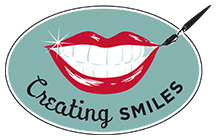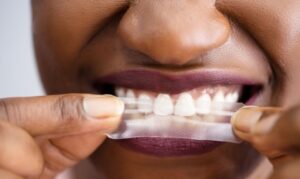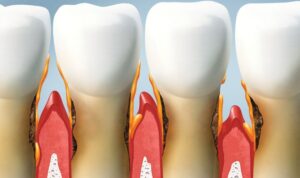We’ve all been there before – a sudden, sharp pain in your tooth or a chipped tooth from biting down on something hard. Dental emergencies can happen at any time and often catch us off, guard. But don’t panic! Knowing what to do in a dental emergency can make all the difference in saving your teeth and preventing further damage. In this blog post, we’ll cover some common dental emergencies and provide you with first-aid tips to help alleviate pain and prevent permanent damage. So sit back, relax, and let’s dive into the world of dental emergencies!
What is a dental emergency?
A dental emergency is a sudden and unexpected dental problem that requires immediate attention. It can happen to anyone at any time and can be caused by various reasons, such as accidents, injuries, infections, or pain.
Examples of dental emergencies include severe toothache, chipped or broken teeth, knocked-out teeth, or loose teeth due to trauma. Other cases may involve bleeding from the mouth due to injury and swelling around the face or jaw.
It’s important to recognize these symptoms as serious issues that need prompt medical attention. Ignoring them could lead to more serious health complications in the future.
Remember: taking action quickly during a dental emergency will save you from further pain and discomfort in the future.
First aid for a chipped tooth
A chipped tooth can be a painful and inconvenient experience, but there are some simple first-aid steps you can take to alleviate the discomfort and protect your tooth from further damage.
Rinse your mouth with warm water to clean the area around the chipped tooth. If there is bleeding, place a clean piece of gauze on the affected area for several minutes until it stops.
If you are experiencing any pain or swelling, apply a cold compress on your cheek near the damaged tooth for 10-15 minutes at a time throughout the day. This will help reduce inflammation and numb any pain.
Avoid chewing food on that side of your mouth as it may cause further damage to the chipped tooth. Stick to soft foods like soup or mashed potatoes while waiting for dental treatment.
First aid for a knocked-out tooth
Accidents happen, and one of the most common dental emergencies is a knocked-out tooth. If you find yourself in this situation, don’t panic! With quick action and proper first aid, there’s a chance your tooth can be saved.
The first thing to do is locate the tooth if possible. Pick it up by the crown (the top part that you see when you smile) and avoid touching the root as much as possible. Rinse off any dirt or debris with water or milk without scrubbing or using soap.
Next, try to place the tooth back into its socket if it will fit comfortably. Hold it gently in place with clean gauze or cloth while seeking emergency dental care immediately.
First aid for severe tooth pain
Severe tooth pain can be unbearable and needs immediate attention. The pain may be caused by various factors such as decayed teeth or an abscess. Here are some first-aid steps to take if you experience severe tooth pain.
The first step is to clean your mouth thoroughly with warm water mixed with salt. This helps remove any debris around the affected area, reducing the risk of infection.
You can also use a cold compress on the affected area for about 20 minutes at a time, every few hours, to help reduce swelling and relieve the pain. If you don’t have a cold pack, a bag of frozen vegetables works just fine.
Over-the-counter pain medication like ibuprofen or acetaminophen can also provide temporary relief until you see your dentist. However, never apply aspirin directly to the gums as it may cause further damage.
Summary
Dental emergencies can happen at any time and it’s important to know how to handle them. A chipped or knocked-out tooth may seem scary, but with quick action and proper first aid, you may be able to save the tooth. Severe tooth pain should not be ignored as it could indicate a serious problem that needs immediate attention from a dentist.
Remember, in any dental emergency, staying calm is key. Contact your dentist, St. Petersburg or seek medical attention right away if needed. By being prepared and knowing what steps to take in case of an emergency, you can help ensure the best possible outcome for your oral health.






